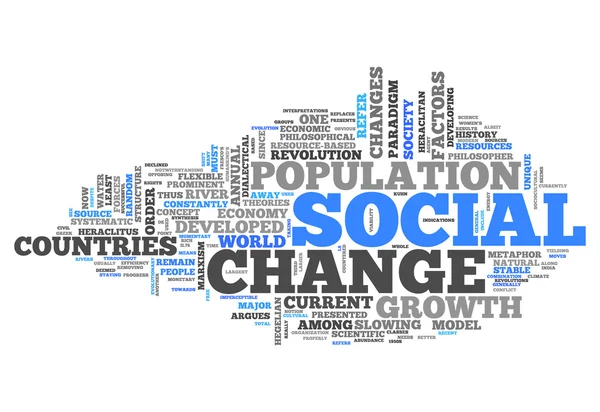
What is Citizen Journalism ?
Citizen journalism, also known as participatory journalism or democratic journalism, is when regular people report news and events in their communities. Unlike professional journalists who work for news organizations, citizen journalists don’t have formal training but use online platforms and social media to share information.
Here are some key points about citizen journalism:
- Who does it: Everyday people, anyone with a smartphone and internet access can be a citizen journalist.
- How it’s done: Citizen journalists use blogs, websites, social media (like Twitter or Facebook), and even podcasts to report on events they witness or stories they hear about.
- Impact: Citizen journalism can be a powerful tool for:
- Sharing news from underreported areas or perspectives.
- Bringing attention to local issues.
- Holding powerful institutions accountable.
- Examples: Citizen journalists have played a role in exposing corruption, documenting social movements, and providing real-time updates during disasters.
Benefits of Citizen Journalism:
- Provides a platform for diverse voices and perspectives.
- Can be a faster and more immediate source of news than traditional media.
- Helps to hold powerful institutions accountable.
Challenges of Citizen Journalism:
- Accuracy and verification of information can be an issue.
- Citizen journalists may lack formal training in journalism ethics and practices.
- Potential for bias or misinformation, especially on social media.


What is Social Change?
Social change refers to the significant alteration of social structures, cultural patterns, and social behavior over time. It encompasses changes in norms, values, institutions, and practices within a society, which can lead to lasting impacts on how communities and individuals interact and function. Social change can be driven by a variety of factors, including technological advancements, economic shifts, political movements, and cultural trends.
Key Characteristics of Social Change :

Transformational: Social change involves fundamental transformations in the way a society operates, often leading to new patterns of behavior and institutional arrangements.
Continuous Process: Social change is ongoing and continuous, though it may occur at different rates and intensities over time.
Multidimensional: It can affect various aspects of society, including economic structures, social relationships, political institutions, and cultural norms.
Collective Impact: Social change typically impacts large groups of people and can reshape entire communities or societies.
Drivers of Social Change :

Technology: Technological innovations, such as the internet, smartphones, and renewable energy, can drastically alter social dynamics, communication, and daily life.
Economy: Economic changes, such as industrialization, globalization, and economic crises, can reshape labor markets, wealth distribution, and living standards.
Politics: Political movements, reforms, and revolutions can lead to significant changes in governance, policies, and the distribution of power.
Culture: Changes in cultural norms, values, and practices can influence social behavior, lifestyles, and community interactions. Examples include shifts towards more progressive attitudes on gender and sexuality.
Demographics: Population changes, such as aging populations, migration, and urbanization, can affect social structures and resource distribution.
Examples of Social Change :

Civil Rights Movement: The struggle for racial equality in the United States during the 1950s and 1960s led to significant legal and societal changes, including the end of segregation and the passage of the Civil Rights Act.
Women’s Suffrage: The movement to grant women the right to vote resulted in significant changes in political participation and gender equality, influencing subsequent feminist movements.
Environmental Movement: Advocacy for environmental protection has led to increased awareness of ecological issues, policy changes, and the adoption of sustainable practices.
Digital Revolution: The advent of the internet and digital technologies has transformed communication, information access, and social interactions on a global scale.
Mechanisms of Social Change :

Education: Education empowers individuals with knowledge and skills, fostering critical thinking and enabling participation in societal development and reform.
Legislation and Policy: Changes in laws and policies can institutionalize social changes, protecting rights and addressing inequalities.
Advocacy and Activism: Grassroots movements, non-governmental organizations, and activists play crucial roles in raising awareness and pushing for social reforms.
Media and Communication: Media platforms, including social media, can disseminate information rapidly, mobilize support, and highlight social issues.
Role and Impact on Social change :

The Role of Education in Social Change :
Education is a powerful tool for social change. It empowers individuals with knowledge, critical thinking skills, and the ability to participate actively in society. Educational initiatives can challenge existing inequalities and promote social justice by providing opportunities for all.
The Impact of Social Media on Social Change :
Social media has become a crucial platform for social change by enabling rapid dissemination of information, mobilizing support for causes, and giving a voice to marginalized communities. Hashtags like #MeToo and #BlackLivesMatter have brought global attention to issues of sexual harassment and racial injustice, respectively.
Challenges to Social Change :

Resistance to Change: Established interests and traditional values can resist alterations to the status quo, slowing down or obstructing change.
Economic Inequality: Disparities in wealth and resources can create barriers to achieving equitable social change.
Political Instability: Political turmoil and lack of effective governance can hinder the implementation of social reforms.
Conclusion :
Citizen journalism has fundamentally changed the way we consume and contribute to news. It empowers individuals to report on their communities, giving voice to underrepresented stories and holding powerful institutions accountable. While challenges around verification and bias exist, citizen journalism’s potential for fostering a more informed and engaged citizenry is undeniable. As technology and media continue to evolve, so too will this dynamic force.
Social change is an essential aspect of societal development and progress. It involves complex interactions between various factors and affects multiple dimensions of human life. Understanding the drivers, mechanisms, and challenges of social change is crucial for effectively addressing societal issues and fostering a more just, equitable, and sustainable world.




